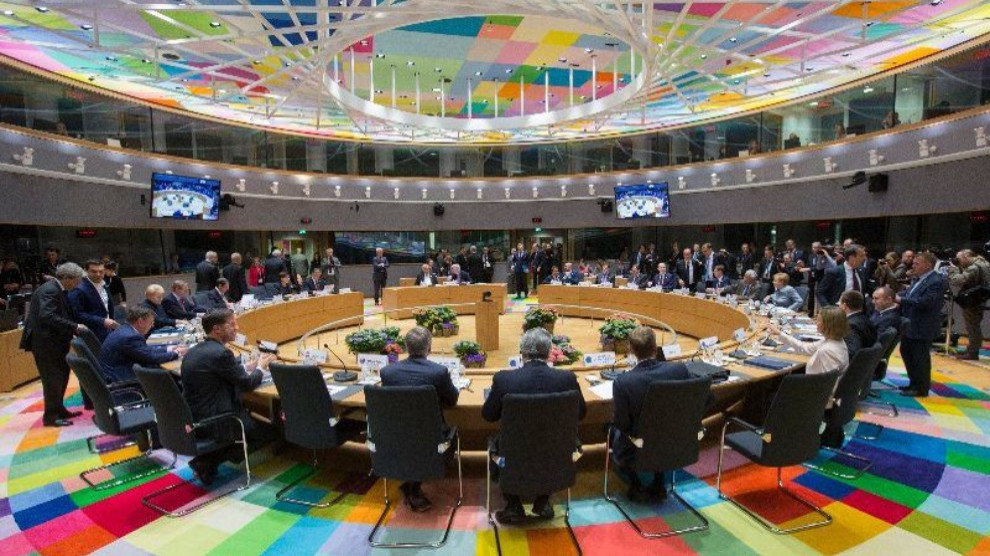EU ministers criticise Turkey over Hagia Sophia, drilling
Several ministers voiced concern at the direction Turkey has taken under President Recep Tayyip Erdogan.
Several ministers voiced concern at the direction Turkey has taken under President Recep Tayyip Erdogan.

A meeting between the foreign ministers of the European Union Member States began in Brussels on Monday July 13 to discuss issues on the international agenda, but the focus is on tension arising with Turkey in recent times on several open fronts, such as the civil war in Libya and the eastern Mediterranean.
"Relations between the EU and Turkey are not good at the moment", Josep Borrell, the EU's High Representative for Foreign Affairs and Security Policy, openly acknowledged before the meeting.
For their first face-to-face meeting in months since the coronavirus pandemic erupted, the ministers were planning to discuss taking a tougher stand on Ankara though no immediate measures were expected.
Several ministers voiced concern at the direction Turkey -- still nominally a candidate to join the EU -- has taken under President Recep Tayyip Erdogan, with the decision to turn Istanbul's iconic Hagia Sophia back into a mosque the latest source of contention.
“When I see now what is happening with Hagia Sophia, that is a blow," Luxembourg Foreign Minister Jean Asselborn said.
The EU is unhappy at what it says is Turkey's illegal drilling for oil and gas off the coast of Cyprus, as well as Ankara's actions in support of the UN-recognised government in Libya and accusations Erdogan's government is eroding rights and democracy at home.
France is particularly incensed about fellow NATO member Turkey's military support of the Tripoli government, suspecting Ankara of breaching a UN arms embargo on the oil-rich but restive north African country.
There are calls from some quarters to punish Turkey over some or all of these disputes, but EU diplomatic chief Josep Borrell, who travelled to Ankara for talks with Turkish ministers last week, has stressed the need to defuse tensions through dialogue.
And since 2016 the EU has relied on Turkey to stem the flow of migrants trying to reach Europe from the Middle East, Asia and Africa -- a fact Ankara has not shied away from leveraging.
"The dynamics of retaliation do not make the Mediterranean a more secure and stable zone -- this will only be achieved through dialogue and negotiations where discrepancies exist," Borrell told the European Parliament's foreign affairs committee last week.
A senior EU official said Borrell was hoping for a clear signal from ministers that he should "urgently talk to Turkey on how we can de-escalate the situation".
But anger is running high among some EU countries, with Luxembourg's veteran Foreign Minister Jean Asselborn slamming the Hagia Sophia move as a "strike against civilisation" and warning Ankara's actions against rights defenders suggested it "despises democracy and despises its own people".
Alexander Schallenberg, the foreign minister of Austria -- which frequently takes a tough line on Turkey -- called the Hagia Sophia change "the latest link in a chain of provocations" and said Ankara was "simply not a reliable partner for Europe".